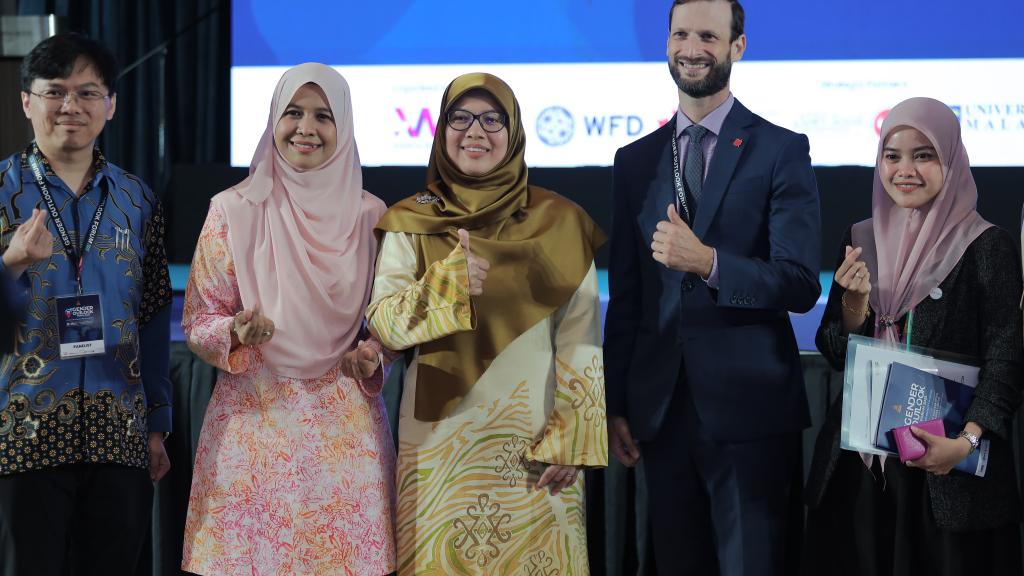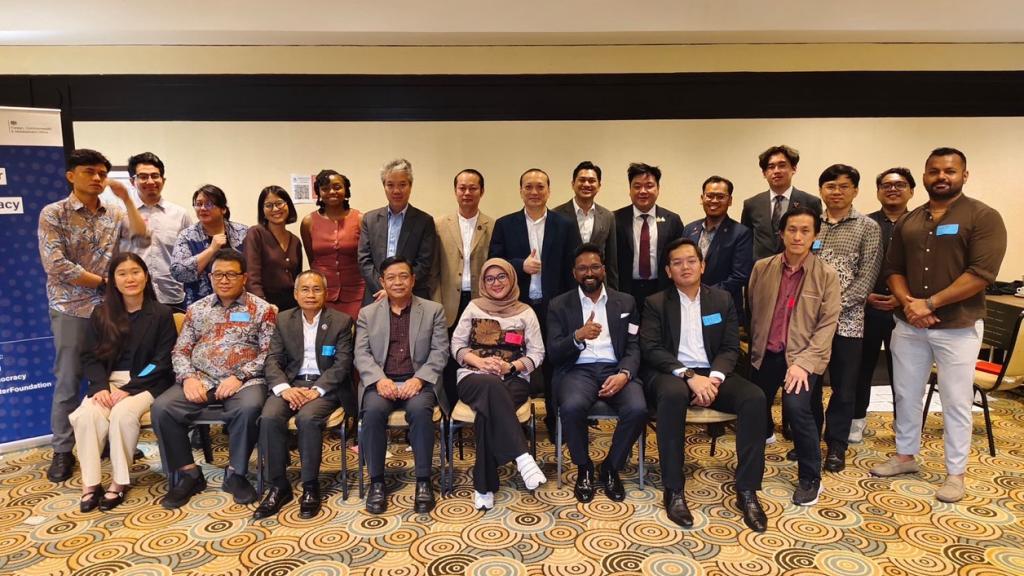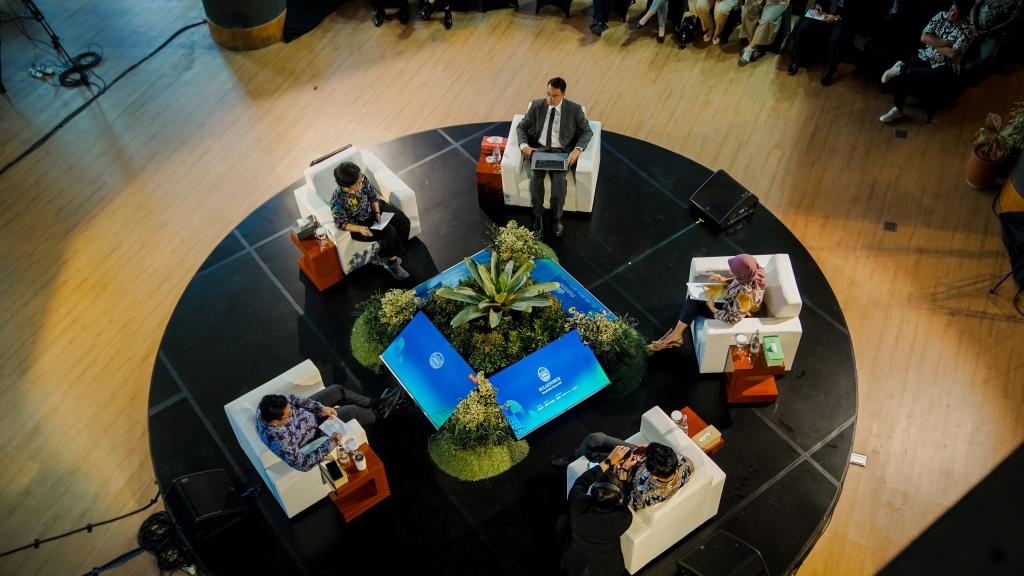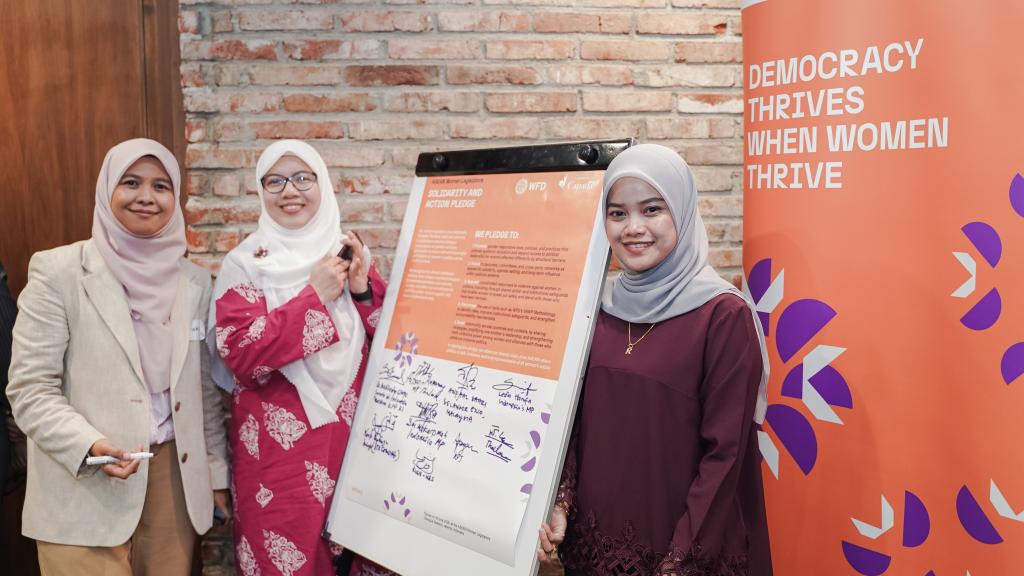WFD in the Asia-Pacific: Key achievements in 2024-2025
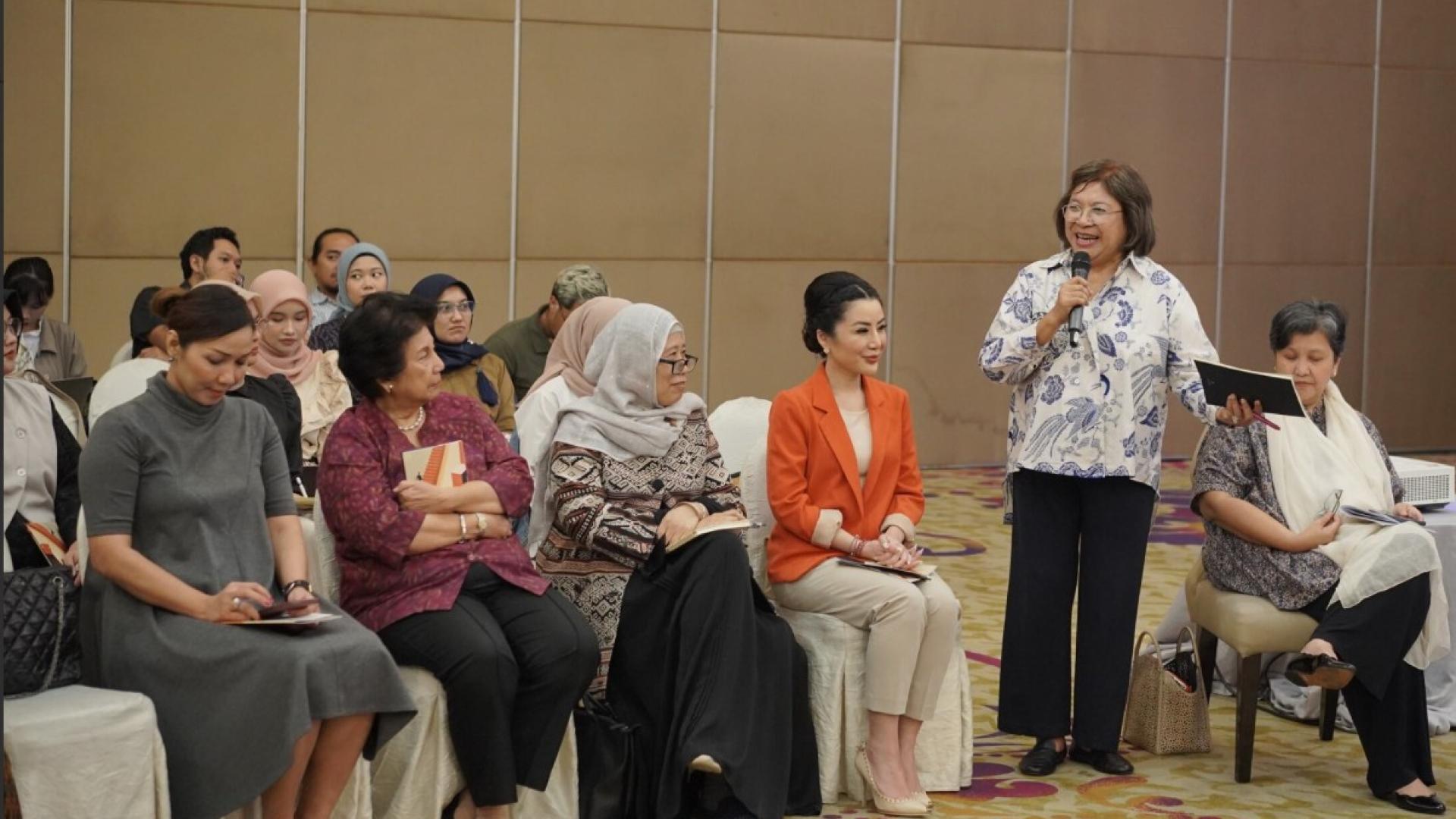
WFD’s locally-led teams across Asia Pacific are delivering meaningful change through strengthening governance, building strong partnerships, and fostering institutional trust. Working closely with regional partners, WFD promotes transparency, accountability, inclusion, electoral integrity, economic growth, women's political leadership, and climate action.
Here are some highlights of our recent work in the region:
Regional initiatives
Improving women’s representation and reducing violence against women in politics
Under the second phase of the ASEAN Women’s Political Leadership programme, WFD introduced a Gender Observatory to coordinate efforts on monitoring and documenting violence against women in politics (VAWP) in Southeast Asia. This work builds on established partnerships in Laos, Thailand, Malaysia, and Indonesia, creating safer and more inclusive political environments for women. The Observatory has collaborated with civil society organisations, government bodies, parliamentary bodies, political parties, and election management bodies, finding common ground, facilitating mutual understanding, and building systematic data collection and monitoring of violence against women in politics and in elections.
Across Indonesia, Laos, Malaysia, and Thailand, over 100 organisations and institutions worked on issues beyond women’s participation in elections, ranging from the arbitrary replacement of elected women candidates by political parties, lack of awareness of the gendered nature of some forms of political violence, and exclusionary practices entrenched within political party leadership, governance, and hierarchies.
Transparency in environmental governance
WFD established the ASEAN Environmental Democracy Framework Observatory to create an updated environmental democracy assessment tool and convene regional experts to benchmark the state of environmental democracy across ASEAN. The results of this benchmarking exercise and its regular updates are shared with wider stakeholders and the public, which promotes transparency and citizen oversight in environmental governance.
Read more on the ASEAN Environmental Democracy Observatory
Bangsamoro (Philippines)
Building inclusive institutions and strengthening electoral frameworks during democratic transition
WFD's long-term partnership with the Bangsamoro transitional government is strengthening democratic stability through inclusive institution-building and enhanced electoral frameworks ahead of the autonomous region's first parliamentary elections in 2025. Notable achievements this past year included technical assistance to legislative processes, facilitating a community of women leaders to connect, network and support each other across political divides, bringing regional political parties together for a learning exchange around a whole-of-society approach to peaceful elections in Sri Lanka, and increasing youth and civil society engagement in political processes, which together contribute to a more accountable and representative democratic transition following decades of violent conflict. Marking the successful conclusion of a WFD programme in the region, the Bangsamoro Parliament commended WFD’s work, which also won a UK Government project delivery award.
Indonesia
Supporting climate action and promoting environmental democracy
In Indonesia, WFD deepened its relationship with the Inter-Parliamentary Cooperation Agency, with whom we’re working to promote environmental democracy. This partnership will enable WFD to continue to support Indonesia’s parliament as it takes more ambitious climate action. This programme builds on previous WFD efforts which helped achieve the inclusion of a climate change bill in the priority national legislative agenda for the first time.
Tackling the cost of politics in the Indo-Pacific region
Continuing its established partnership with the Government of Indonesia, WFD hosted the Democracy Action Partnership (DAP) in Jakarta in December 2024. The forum brought together over 100 democracy leaders from the Indo-Pacific region to explore WFD's extensive cost of politics research and develop action ideas to tackle this endemic democratic governance challenge.
Laos
Introducing post-legislative scrutiny approaches to provinces
In Laos, WFD supported inclusive parliamentary processes by working with the National Assembly and subnational assemblies to introduce post-legislative scrutiny (PLS) approaches at the provincial level. What began in two 'champion provinces' has now expanded to all 18 provinces across the country.
Maldives
Increasing internal accountability and transparency of political parties
WFD Maldives delivered a Political Academy to encourage party reforms that increase internal accountability and transparency. The programme also delivered two key research studies, one on the cost of politics and the other on online violence against women in politics, convened women leaders across party lines, engaged male political leaders through allyship workshop and culminated the programme with a cross-party statement on ensuring safety and equal opportunities for women in politics signed by seven out of the nine Maldivian political parties. This work lays a foundation for improved interparty dialogue and greater electoral competitiveness.
Nepal
Building inclusive, transparent, and participative provincial assemblies
In Nepal, WFD supported provincial assemblies in three provinces to develop and enhance their systems, structures, rules, procedures, and protocols. This work focused on achieving more inclusive, transparent, and participative assembly committees, secretariats and leaderships, but also including civil society actors and representatives of structurally marginalised groups and communities.
For instance, in Lumbini and Karnali provinces, WFD supported committees to assess the implementation of laws. This process included public interactions where elected leaders engaged with communities and local stakeholders to hear their experiences.
Solomon Islands
Supporting long-term institutional development through knowledge exchange
As part of a programme working in partnership with the National Parliament of Solomon Islands to strengthen parliamentary policies, practices and processes, WFD facilitated a learning exchange partnership with the Tynwald (parliament of the Isle of Man). These regular online sessions, punctuated by periodic in-person contact, build two-way peer relationships of trust towards helping improve internal processes, strengthening committee systems, and supporting long-term institutional development — demonstrating WFD’s locally led approach to capacity building and trusted international cooperation.
Sri Lanka
Building institutional trust in parliament and facilitating inclusive economic growth
In Sri Lanka, WFD aided building institutional trust in parliament through training, technical assistance, and policy engagement. Efforts centred on improving public access to information and strengthening the role of parliamentary committees, particularly in financial oversight. WFD also responded to parliamentary elections with a tailored induction programme developed together with parliamentary stakeholders and other development partners.
With WFD’s support, the Election Commission of Sri Lanka formed a collaborative, multi-stakeholder taskforce to enforce the Regulation of Election Expenditure Act (REEA), Sri Lanka’s first ever campaign finance law. WFD also supported country's first online monitoring tool to track campaign expenditure. Meanwhile, with the Coalition of Inclusive Impact (CII), WFD continues to incorporate diverse and marginalised voices in Sri Lanka’s economic stabilisation and transformation.
Taiwan
Improving the information ecosystem
In Taiwan, WFD improved the information ecosystem framework that integrates disinformation research, fact-checking, support for trustworthy media, and media literacy initiatives. The work has provided professional development and encouraged civil society to break out of silos, bringing together democratic actors and facilitating cross-sector collaborations. These partnerships enable a more holistic response to shared challenges, strengthening Taiwan’s collective resilience.
